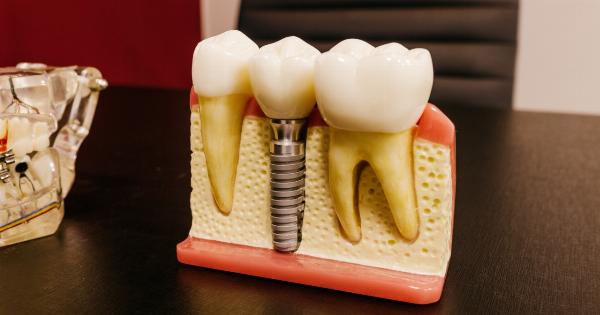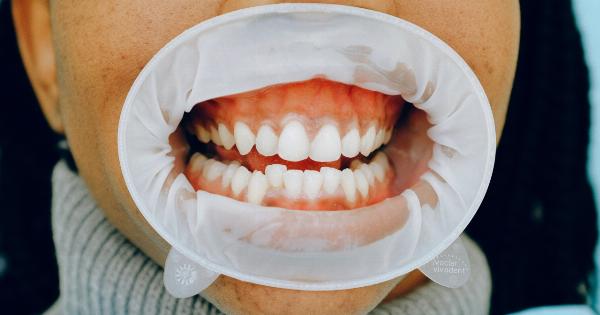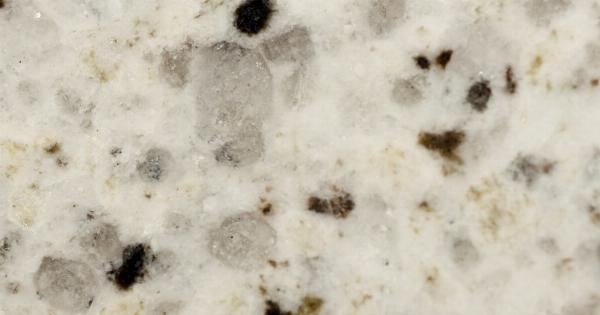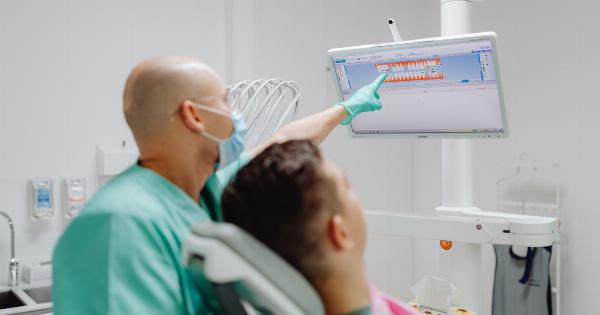Have you ever experienced a painful sore in your mouth? If yes, then you might be familiar with aphthae, commonly known as canker sores. Aphthae are tiny, shallow sores that pop up inside the mouth, lips, or tongue, causing immense pain and discomfort.
These sores are quite common and affect nearly everyone at some point in their life, irrespective of their age or gender. But what exactly causes them, and how can you treat them? Read on to find out.
What Are Aphthae Sores?
Aphthae sores, also known as recurrent aphthous stomatitis (RAS) or canker sores, are shallow and painful sores that usually appear on the inside of the cheeks, inner lips, gums, and tongue.
They are small, round or oval in shape with a white or yellow center and a red border. Most of the time, they are harmless and resolve on their own within a week or two. However, some severe cases might require medical attention and intervention.
Types of Aphthae Sores
There are mainly three types of aphthae sores:.
- Minor Aphthae: These are the most common type of canker sores. They are small (less than 0.5cm in diameter), painful, and usually resolve within a week or two.
- Major Aphthae: These are less common but larger in size (more than 0.5cm in diameter) and deeper than minor aphthae. They are more painful and take longer to heal, usually several weeks to months.
- Herpetiform Aphthae: These are small, numerous (up to 100 at a time), and occur in clusters. They are the least common of all and might take weeks to heal altogether.
Causes of Aphthae Sores
Even though aphthae sores are a common oral health issue, the exact cause behind them is still unknown. However, research suggests that these sores are multifactorial and might occur due to a combination of several factors, such as:.
- Trauma or Injury: Accidentally biting your tongue, cheek, or lip, using a hard-bristled toothbrush, or an ill-fitted denture can cause minor injuries that might lead to aphthae sores.
- Stress: Stress is also considered a significant cause of canker sores. Emotional and psychological stress can compromise your immune system, making you more susceptible to developing aphthae sores.
- Food Allergens: Certain food allergens, such as gluten, chocolate, spicy foods, nuts, acidic fruits, and vegetables might trigger canker sores in susceptible individuals.
- Hormonal Changes: Hormonal fluctuations, such as before menstruation or during pregnancy, might also trigger the formation of aphthae sores.
- Underlying Medical Conditions: Certain underlying medical conditions, such as celiac disease, inflammatory bowel disease (IBD), Behcet’s disease, HIV/AIDS, and a weakened immune system, might also cause canker sores.
Symptoms of Aphthae Sores
Aphthae sores usually manifest as small, painful ulcers inside the mouth, lips, or tongue. Some of the common symptoms include:.
- Pain or discomfort inside the mouth
- Burning or tingling sensation before the sores appear
- A single or several painful sores inside the mouth
- Small, round or oval-shaped sores with a white or yellow center and a red border
- Difficulty in speaking, eating, or drinking
- Slight fever in severe cases
Treatment of Aphthae Sores
Most of the time, aphthae sores resolve on their own without any specific treatment within a week or two. However, if the sores are causing significant pain and discomfort, some at-home remedies and medication might help alleviate the symptoms.
These include:.
- Topical Antimicrobial Agents: Applying topical antimicrobial agents, such as benzocaine, lidocaine, or hydrogen peroxide, to the sores can help numb the pain and promote healing.
- Oral Pain Relievers: Over-the-counter (OTC) pain relievers, such as ibuprofen or acetaminophen, can help alleviate the pain and inflammation caused by aphthae sores.
- Saltwater Rinse: Rinsing your mouth with warm saltwater solution (1 teaspoon of salt in 8 ounces of water) can help ease the pain and promote healing.
- Hydrogen Peroxide Rinse: Gargling with a mixture of 3% hydrogen peroxide and water (1:1) can help disinfect the sores and reduce inflammation.
- Topical Corticosteroids: Applying topical corticosteroids, such as triamcinolone acetonide or fluocinonide, can help reduce the inflammation and promote healing of aphthae sores.
Prevention of Aphthae Sores
While there is no surefire way to prevent aphthae sores, following some simple guidelines might help reduce the risk and frequency of their occurrence:.
- Maintain good oral hygiene, including brushing twice a day with a soft-bristled toothbrush and flossing regularly.
- Avoid spicy, acidic, or citrus foods, which might trigger the formation of canker sores.
- Manage your stress levels through stress-reduction techniques such as meditation, yoga, or deep breathing.
- Make sure your dentures or dental appliances fit well and are not causing any irritation or injury to your mouth.
- If you notice any food allergens that might trigger aphthae sores, avoid them altogether.
When to Seek Medical Attention?
Most of the time, aphthae sores are not severe and resolve on their own within a week or two. However, if you notice any of the following symptoms, seek immediate medical attention:.
- Refusal to eat or drink due to excessive pain or discomfort
- Severe pain or discomfort that lasts more than two weeks
- Large, deep, or numerous canker sores
- Fever or other signs of infection
- Persistent sores that keep coming back
Conclusion
Aphthae sores, commonly known as canker sores, are tiny and painful ulcers that commonly affect almost everyone at some point in life.
While the exact cause behind them is still unknown, some factors, such as stress, allergies, trauma, hormonal fluctuations, and underlying medical conditions, might trigger their occurrence. Most of the time, these sores resolve on their own without any specific treatment. However, if you’re experiencing significant pain or discomfort, seek medical intervention immediately.


























